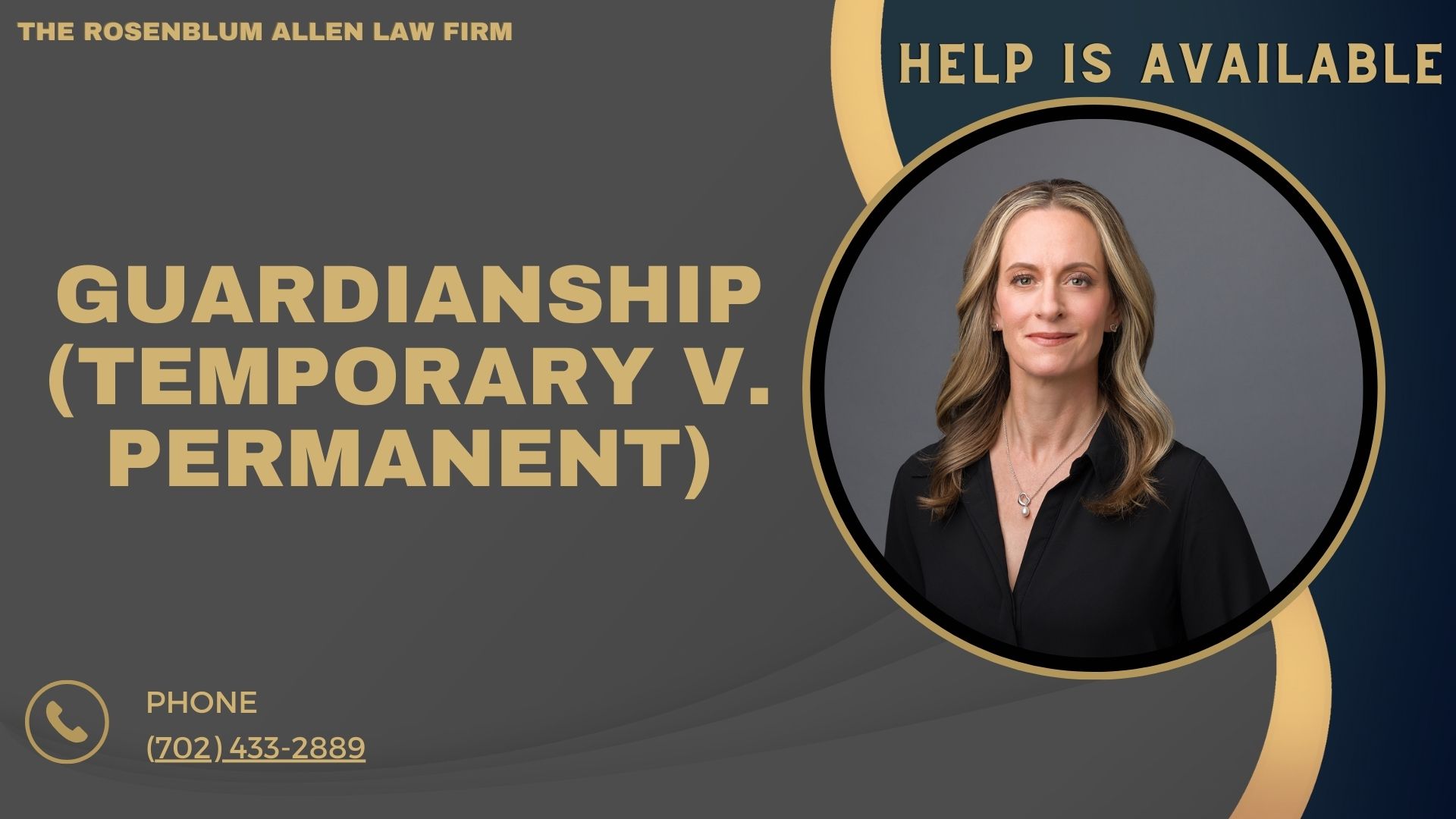Guardianship is a legal relationship established when someone is appointed to make decisions for someone who cannot do so independently. This could be due to age, illness, or disability.
Guardianship helps protect vulnerable individuals by ensuring that they are responsible for their personal or financial well-being.
Definition of Guardianship
At its core, guardianship means that a court has given one person or entity the responsibility to care for another person. The guardian is responsible for making important decisions for the person, known as the “ward,” who cannot make decisions independently.
When is Guardianship Necessary?
Guardianship becomes necessary when someone cannot manage their personal, financial, or medical affairs. Common situations include:
- Minors who don’t have parents or whose parents cannot take care of them.
- Incapacitated adults can no longer make their own decisions due to mental or physical limitations.
- Adults with disabilities who need support in specific areas like healthcare or finances.
Guardianship for Minors
Guardianship for minors occurs when a parent is unable or unavailable to care for their child. Depending on the situation, there are different types of guardianship arrangements.
Temporary Guardianship
Temporary guardianship is designed for short-term situations. It allows someone to take care of the child for a set period.
When Temporary Guardianship Applies
Temporary guardianship might be necessary in various scenarios, such as:
- Short-term illness or hospitalization of a parent.
- Travel where the parent is away and unavailable to care for the child.
- Emergencies like accidents or unexpected events.
Temporary guardianship gives someone the authority to make decisions and care for the child until the parent can resume their role.
Permanent Guardianship
Permanent guardianship is meant for long-term arrangements, usually when parents can no longer care for their child permanently. This could be because of death, incapacity, or other serious reasons.
Legal Process for Permanent Guardianship
Obtaining permanent guardianship involves several legal steps:
- Petition: A formal request is filed with the court.
- Parental consent: In some cases, the parent’s consent may be needed, especially if they are still alive but unable to care for the child.
- Court hearings: The court will evaluate the situation to ensure the child’s best interests are met before granting permanent guardianship.
This process ensures the child is placed in a stable, safe environment.
Standby Guardianship
Standby guardianship allows parents or guardians to name someone who will take over caring for the child if they die or become incapacitated.
Benefits of Standby Guardianship
This type of guardianship offers several benefits:
- Peace of mind: Parents can rest easy knowing that their child will be cared for if something happens to them.
- Continuity of care: The child will be able to handle the gap in care or support as a standby guardian is ready to step in.
Standby guardianship allows parents to ensure their child’s care without requiring immediate changes in their current arrangement.

Guardianship for Adults
Adult guardianship may be necessary if a person is unable to make important life decisions due to illness, disability, or incapacity. Different types of guardianship exist to address varying needs and provide appropriate levels of care and support.
Guardianship of the Person
Guardianship of the person grants someone the legal right to make personal decisions for an incapacitated adult. This includes decisions about healthcare, living arrangements, and overall daily care.
Responsibilities of the Guardian of the Person
The person’s guardian manages essential aspects of the ward’s life. Some of these responsibilities include:
- Healthcare decisions: The guardian ensures that the ward receives proper medical care, which may involve authorizing treatments, surgeries, or selecting healthcare providers.
- Living arrangements: The guardian decides where the ward will live, whether staying at home with assistance or moving to a specialized care facility.
- Daily care: This includes overseeing the ward’s personal needs, such as grooming, meals, and safety.
Guardianship of the person is focused on the physical and emotional well-being of the needy adult.
Guardianship of the Estate
Guardianship of the estate applies when an adult cannot manage their financial affairs. This form of guardianship allows the guardian to handle the ward’s assets, pay bills, and manage financial responsibilities.
Duties of the Guardian of the Estate
A guardian of the estate manages the ward’s financial matters, ensuring their money and property are protected and used in their best interest. Key duties include:
- Managing investments and property: The guardian must carefully manage the ward’s assets and make sound financial decisions to preserve or grow their wealth.
- Paying bills and taxes: The guardian ensures that all the ward’s financial obligations, including taxes, are paid on time.
- Protecting assets from misuse: The guardian has a legal duty to safeguard the ward’s finances, ensuring that no one misuses or mishandles their money or property.
This type of guardianship is vital for individuals who have substantial assets but cannot manage them due to mental or physical impairment.
Limited Guardianship
Limited guardianship is designed for individuals who may not need full guardianship but require assistance in specific areas of their lives. It grants authority over certain decisions while allowing the ward to retain control over other aspects of their life.
When Limited Guardianship is Appropriate
Limited guardianship works well for adults who:
- Need help with specific decisions such as financial or medical matters but are otherwise independent.
- They have a mental disability that affects specific aspects of decision-making but not their overall ability to live independently.
This type of guardianship encourages a balance between assistance and autonomy, allowing the ward to maintain as much independence as possible.
Co-Guardianship
In some cases, more than one person may be appointed as a guardian. Co-guardianship involves shared responsibility for the ward, allowing multiple individuals to participate in decision-making.
Shared Decision-Making in Co-Guardianship
Co-guardianship requires cooperation between the guardians to make decisions in the ward’s best interest. Both guardians must communicate and agree on matters relating to the ward’s care or finances.
Advantages of Co-Guardianship
Co-guardianship has several benefits:
- Reduces the burden: Sharing guardianship responsibilities can prevent burnout for a single guardian, as they have support in making decisions and managing care.
- Brings multiple perspectives: Having more than one guardian allows for different viewpoints, leading to better decision-making in complex situations.
By dividing the duties, co-guardianship provides a well-rounded approach to managing the ward’s needs.

Emergency Guardianship
Emergency guardianship is used when immediate action is necessary to protect someone in danger or at risk of harm. This type of temporary guardianship is granted quickly to address urgent situations.
Immediate Need for Emergency Guardianship
Emergency guardianship is often requested when a person’s health or safety is at immediate risk. Some situations that may require emergency guardianship include:
- Sudden illness or injury: If someone becomes incapacitated unexpectedly, and there’s no one available to make decisions.
- Immediate threat to well-being: This could involve a person being financially exploited or in a dangerous living situation.
Process for Establishing Emergency Guardianship
The process for emergency guardianship typically involves the following:
- Filing a petition: A request is made to the court explaining why immediate guardianship is necessary.
- Demonstrating the urgency: The court will need proof that the individual is at immediate risk of harm or neglect.
- Limited duration: Emergency guardianship is usually granted for a short period until a permanent solution can be arranged.
This type of guardianship is intended to provide quick protection and ensure that the individual’s basic needs are met during a crisis.

Understanding the various types of guardianship is crucial when caring for someone who cannot make decisions independently. Whether it’s a minor needing temporary care or an incapacitated adult requiring long-term financial oversight, there is a guardianship option that fits each situation.
By knowing the differences between temporary, permanent, and limited guardianship and options like co-guardianship and emergency guardianship, families can make informed choices that protect their loved ones and ensure they receive the care and support they need. If you find yourself in a situation where guardianship is necessary, consult a legal professional to guide you.

Frequently Asked Questions
What is the difference between guardianship of the person and guardianship of the estate?
Guardianship of the person involves making personal, medical, and living arrangement decisions for the ward. Guardianship of the estate, on the other hand, deals with managing the ward’s financial matters, including paying bills, managing assets, and handling taxes.
How long does it take to establish guardianship?
The process varies depending on the type of guardianship. Emergency guardianship can be granted within days due to its urgent nature, while permanent guardianship may take several weeks or months as it requires court filings, hearings, and approval.
Is guardianship permanent?
Only sometimes. Some forms of guardianship, like temporary or emergency guardianship, are designed to be short-term. Permanent guardianship is long-term but can be modified or terminated if circumstances change.
Can the same person be both guardian of the person and guardian of the estate?
Yes, I am both the person’s guardian and the estate’s guardian. However, in some cases, these roles are split between different individuals to manage specific aspects of care and finances separately.
What happens if a guardian fails in their responsibilities?
If a guardian neglects or mismanages their duties, the court can remove them. In severe cases, they may face legal consequences for any harm or financial loss caused to the ward.
Is co-guardianship better than having one guardian?
Co-guardianship can be beneficial because it allows for shared decision-making, which can reduce the burden on one person. However, strong communication and cooperation between the guardians are required.
What are the alternatives to guardianship?
Alternatives may include powers of attorney or conservatorship, depending on the individual’s needs. These options provide some of the same protections as guardianship without the same level of legal intervention.

Glossary
Guardianship: A legal arrangement where a person or institution is appointed to make decisions for someone who cannot make decisions for themselves due to age, illness, or incapacity.
Guardian: The person or institution appointed by the court to make decisions on behalf of the ward.
Ward: The individual for whom a guardian has been appointed, either a minor or an incapacitated adult.
Guardianship of the Person: A type of guardianship where the guardian is responsible for personal, medical, and day-to-day decisions for the ward.
Guardianship of the Estate: A type of guardianship where the guardian is in charge of managing the ward’s financial affairs, including assets, bills, and property.
Temporary Guardianship: A short-term guardianship arrangement, usually used in emergency situations or when the guardian will only need to step in for a limited period.
Permanent Guardianship: A long-term guardianship arrangement where the guardian is responsible for the ward on an ongoing basis, often until the ward reaches adulthood or recovers from incapacity.
Standby Guardianship: A guardianship that goes into effect only if the current guardian becomes unable to care for the ward, often due to illness or death.
Limited Guardianship: A type of guardianship that grants the guardian authority only over specific aspects of the ward’s life, such as finances or healthcare, while the ward retains control over other areas.
Co-Guardianship: An arrangement where two or more people are appointed as guardians, sharing the responsibility of making decisions for the ward.
Emergency Guardianship: A temporary guardianship granted in urgent situations where the ward is at immediate risk, typically lasting only until a more permanent arrangement can be made.
Incapacitated Adult: An adult who is unable to make decisions for themselves due to mental or physical impairments.
Court Petition: The formal request made to a court to establish guardianship.
Best Interests of the Child: The legal standard courts use to determine what will most benefit the child when deciding on guardianship or custody matters.
Conservatorship: Similar to guardianship, but often used specifically for managing the financial affairs of an adult who is unable to do so independently.
Power of Attorney: A legal document that grants someone else the authority to make decisions on behalf of another person, usually without the need for court involvement.

Additional Links For You
Our lead attorney, Molly Rosenblum Allen, Esq., has not only provided effective legal services but has also developed a suite of resources to assist those navigating the complexities of guardianship. These resources are designed to guide you through various aspects of guardianship law, offering clarity and support when you need it most. Here’s a brief overview of the valuable resources she has created:
Las Vegas Guardianship Attorney: A comprehensive guide for those seeking guardianship-related legal assistance in Las Vegas.
Legal Guardianship: An in-depth look at legal guardianship, outlining the process, responsibilities, and key considerations.
Guardianship Forms: Access to essential forms and documentation required for the guardianship process.
Guardianship of a Child in Las Vegas: Specific guidance on obtaining guardianship of a child in Las Vegas, covering legal requirements and procedural steps.
Adult Guardianship: Insights into the process of becoming a guardian for an adult, including the legal implications and duties involved.
Pros and Cons of Guardianship: An analysis of the advantages and disadvantages of guardianship, providing a balanced perspective for decision-making.
Dependency Cases: Effective insights into dependency cases, offering guidance for those dealing with this complex area of law.
Terminate Legal Guardianship: Information on the process and legal requirements for terminating a guardianship.
Parental Responsibility for Disabled Adults in Nevada: Guidance on managing parental responsibilities for disabled adults, focusing on Nevada’s specific laws and regulations.
Nevada Power of Attorney: A resource explaining the intricacies of power of attorney in Nevada, including how to obtain it and its implications.
Molly Rosenblum Allen, Esq. is dedicated to providing support and clarity during your guardianship journey. We encourage you to explore these resources to gain the knowledge and confidence needed to navigate your legal challenges.

Offsite Resources You May Find Helpful
Here are seven offsite resources that provide information about temporary and permanent guardianship:
FindLaw: This online resource provides free legal information, a lawyer directory, and other resources on a wide range of legal topics, including temporary and permanent guardianship.
Justia: Justia offers free legal information and a directory of attorneys for various legal issues, including temporary and permanent guardianship.
American Bar Association: The ABA provides a variety of resources on legal topics, including information on temporary and permanent guardianship.
Nolo: Nolo provides legal information for consumers and small businesses, including articles, blogs, FAQs, and news on temporary and permanent guardianship.
Avvo: This website provides a directory of lawyers, legal advice, and other resources on a broad range of legal topics, including temporary and permanent guardianship.
LegalMatch: This online legal matching service helps individuals find lawyers in their area and provides advice and resources on family law matters, including temporary and permanent guardianship.
The National Guardianship Association: This organization provides educational, training, and networking opportunities for guardians and about guardianship. It’s a great resource for understanding both temporary and permanent guardianship.

What's Next?
Are you trying to find the perfect guardian attorney in Las Vegas?
Look no further!
The Rosenblum Allen Law Firm has got your back.
Our experienced lawyers have been helping people get a handle on their legal needs for over 10 years.
Plus, our office is conveniently located right here in sunny Las Vegas, NV – just minutes away from wherever you are!
So call us today at (702) 433-2889 to learn more about how we can help make sure that every aspect of the guardianship process goes smoothly for everyone involved.
Don’t wait any longer – call us now and let’s start getting things sorted together!




